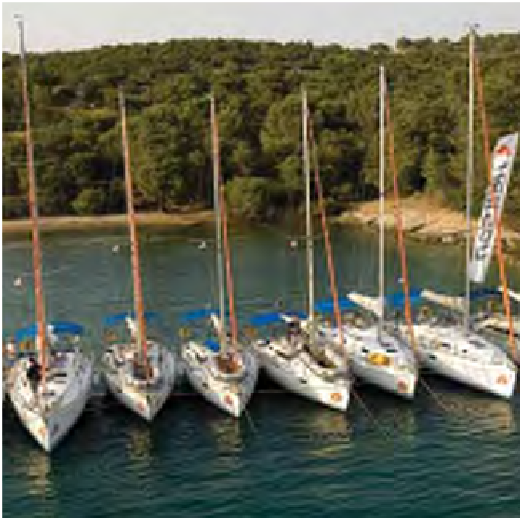Travel Reference
In-Depth Information
Types of organisations in travel
and tourism
Private sector organisations
This section looks at the various private sector
organisations involved in travel and tourism, starting
with public limited companies (plcs).
Travel and tourism organisations come in all shapes and
sizes! Some are well-known companies like Thomas
Cook, easyJet and Alton Towers, but most are small
and medium-sized enterprises (SMEs) employing small
numbers of staff and specialising in a particular travel
product or service. Organisations in travel and tourism
can be divided into those that operate in the public
sector and those found in the private sector.
Public limited company (plc)
These are usually large organisations with hundreds
or even thousands of employees. Many of the biggest
names in the travel and tourism sector are plcs, for
example Virgin, easyJet, Thomas Cook, Thomson,
Cosmos, Hilton Hotels and British Airways. Investors in
plcs have the benefi t of limited liability in the same way
as those investing in private limited companies. i.e. if
the company ceases trading they are only liable for the
amount they have invested. The difference lies in the
word 'public', meaning that the shares of a plc can be
offered for sale to the public on the Stock Exchange.
As well as the advantage of limited liability, plcs have
greater opportunities for expansion and may benefi t
from signifi cant tax advantages. One disadvantage of
plcs (and private limited companies too) is that there is
less confi dentiality since they are required to publish
their accounts annually. Also, their size and structure
means that they are not always able to react quickly to
new market opportunities unless the management and
workforce are very fl exible.
Public sector organisations
Travel and tourism organisations operating in the public
sector can be:
1.
Government-controlled - National and Regional
Tourist Boards receive funding from central
government, e.g. VisitBritain (see case study on
page 27);
2.
Local government-controlled - most local councils
have a department or members of staff involved
with promotion and developing tourism, e.g.
Birmingham City Council, Torbay Council in Devon,
Pembrokeshire County Council and Belfast City
Council;
3.
Membership organisations - English Heritage is
funded from public money, but also raises income
through membership subscriptions (see case study
on page 18). In 2008-09 membership of English
Heritage stood at 687,000 (972,800 including
corporate members).
Weblink
Check out these websites for more
information on local government-
controlled travel and tourism
organisations.
www.belfastcity.gov.uk;
www.pembrokeshire.gov.uk;
www.torbay.gov.uk;
www.birmingham.gov.uk
Neilson is owned by Thomas Cook - a public limited
company (plc)















































































































































































































































